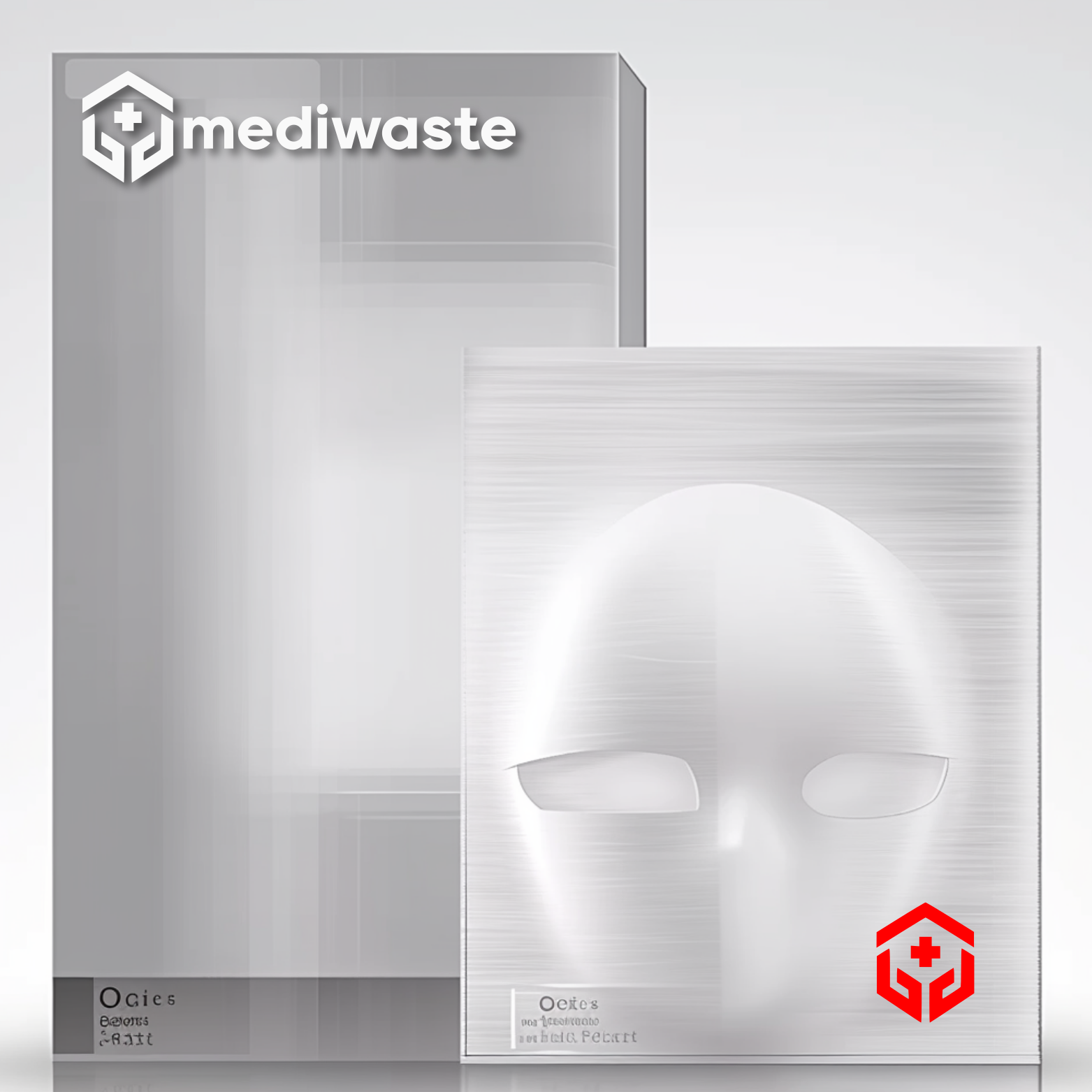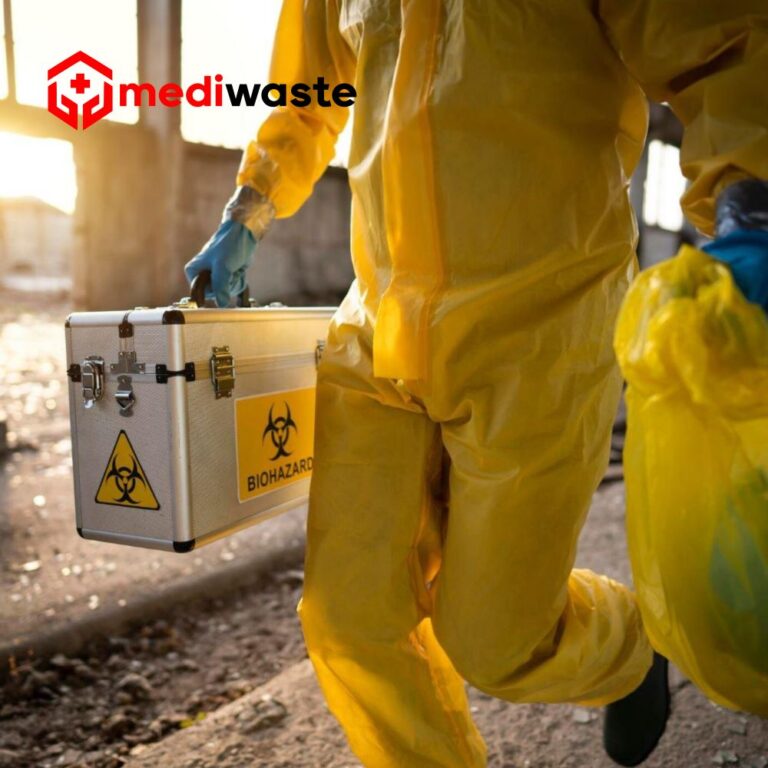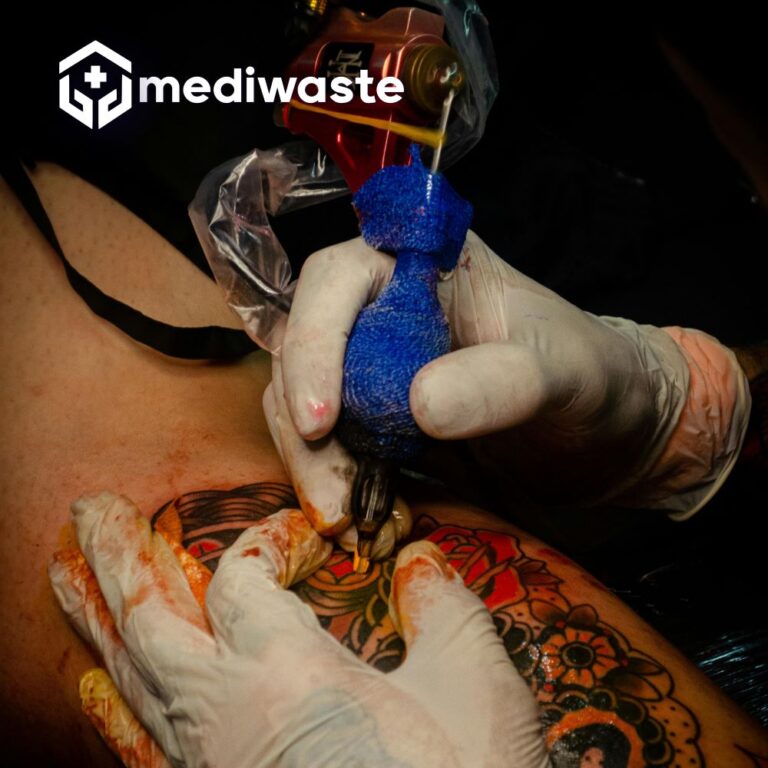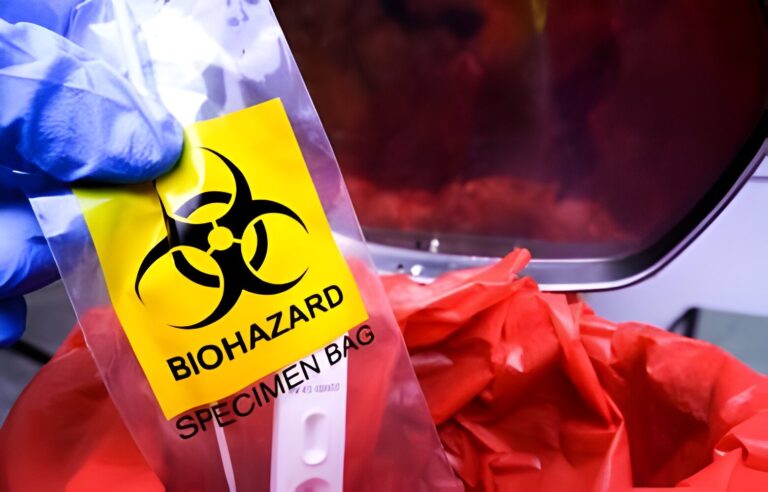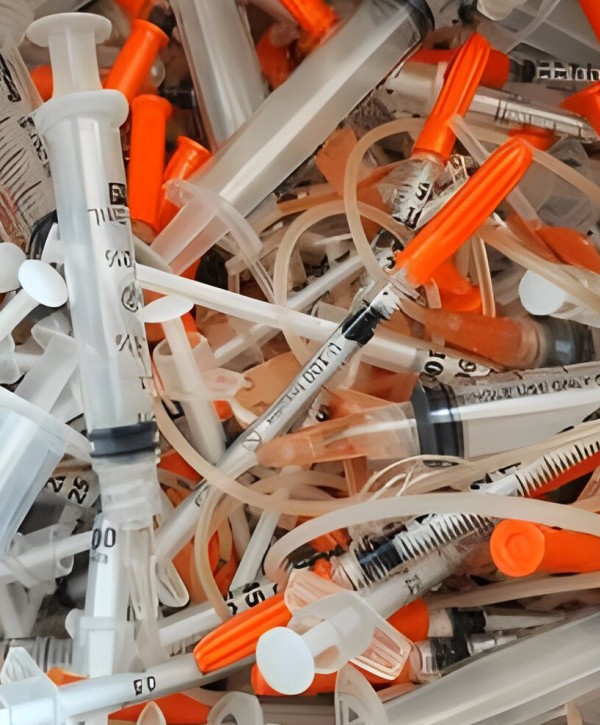Best Practices for Recycling Sterilization Wrap in Healthcare Settings
Sterilization wrap, commonly known as “blue wrap,” is a significant source of waste in healthcare settings, particularly in operating rooms. As healthcare facilities strive to reduce their environmental impact and improve sustainability, recycling sterilization wrap has emerged as a key initiative. This article explores best practices for implementing and maintaining an effective sterilization wrap recycling program in healthcare settings.
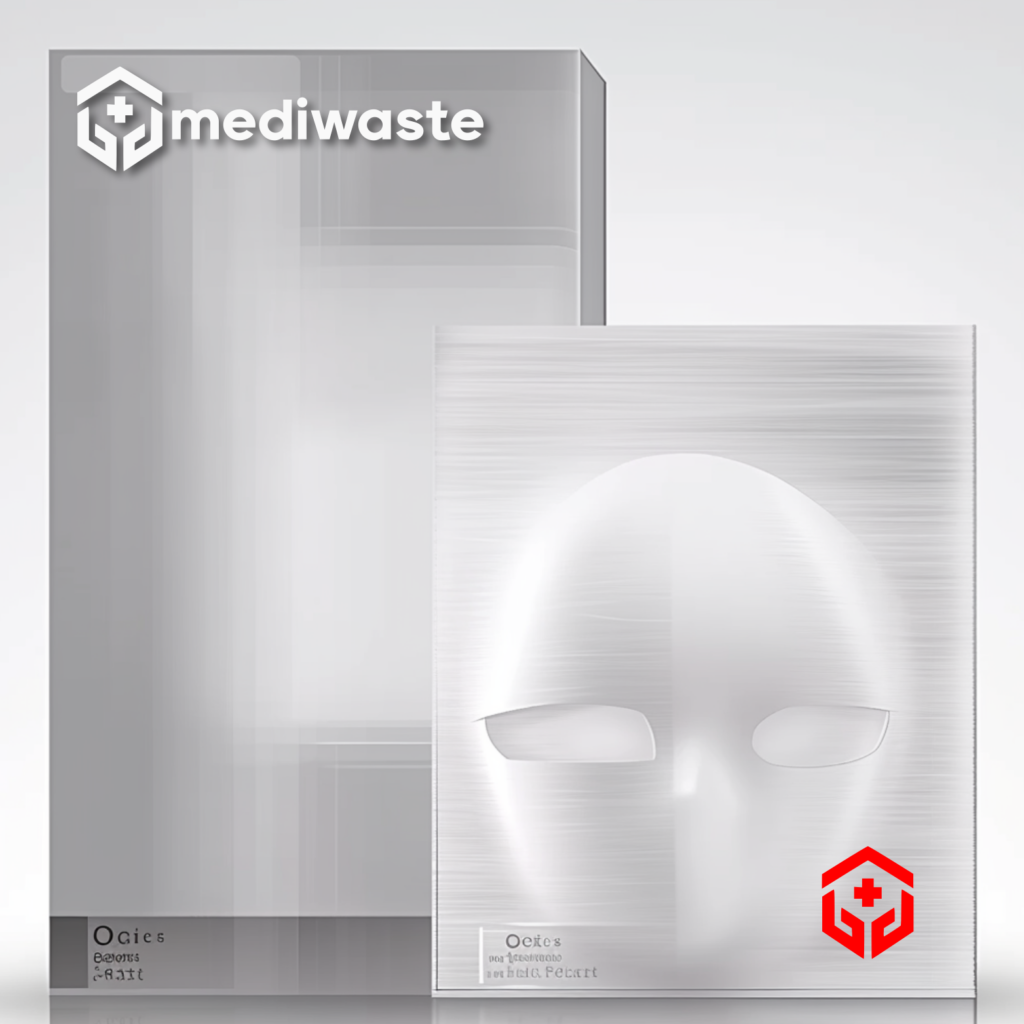
Understanding Sterilization Wrap
Sterilization wrap is a polypropylene-based material used to maintain the sterility of surgical instruments and other medical devices after sterilization. It’s typically blue in color and accounts for a substantial portion of operating room waste. According to some estimates, sterilization wrap can constitute up to 19% of OR waste and 5% of total hospital waste.
MediWaste, the leading provider of medical waste management solutions, has observed that many healthcare facilities struggle with the proper disposal of sterilization wrap. Data indicates that a significant amount of this recyclable material often ends up in general waste streams, contributing to unnecessary landfill waste.
The Importance of Recycling Sterilization Wrap
Recycling sterilization wrap offers several benefits:
- Environmental Impact: Reducing the amount of plastic waste sent to landfills.
- Cost Savings: Potentially lowering waste disposal costs for healthcare facilities.
- Regulatory Compliance: Helping facilities meet sustainability goals and regulations.
- Resource Conservation: Conserving resources by allowing the material to be repurposed.
Best Practices for Implementing a Sterilization Wrap Recycling Program
1. Conduct a Waste Audit
Before implementing a recycling program, conduct a thorough waste audit to understand the volume of sterilization wrap being generated and current disposal practices. MediWaste offers professional waste audit services that can help healthcare facilities accurately assess their sterilization wrap waste and identify opportunities for recycling.
2. Engage Stakeholders
Successful implementation requires buy-in from various stakeholders:
- Hospital Administration
- Operating Room Staff
- Environmental Services
- Sterile Processing Department
- Sustainability Team
Engage these groups early in the planning process to address concerns and gather input.
3. Develop Clear Guidelines
Create clear, easy-to-follow guidelines for collecting and segregating sterilization wrap:
- Specify which types of wrap can be recycled (e.g., clean, uncontaminated wrap)
- Provide visual aids to help staff identify recyclable wrap
- Establish protocols for handling and storing collected wrap
MediWaste can assist in developing comprehensive guidelines tailored to your facility’s specific needs and regulatory requirements.
4. Set Up Proper Collection Infrastructure
Implement an efficient collection system:
- Place clearly labeled recycling bins in strategic locations (e.g., near where wrap is removed)
- Use color-coded bins to distinguish recycling from other waste streams
- Consider using clear bags for recycling to easily identify contamination
5. Provide Staff Training
Comprehensive staff training is crucial for program success:
- Educate all relevant staff on the importance of recycling sterilization wrap
- Provide hands-on training on proper segregation techniques
- Offer regular refresher courses to maintain awareness and compliance
MediWaste offers tailored training programs to ensure all staff members understand and can effectively participate in sterilization wrap recycling initiatives.
6. Monitor and Track Progress
Implement a system to monitor and track the program’s success:
- Regularly weigh and record the amount of wrap collected for recycling
- Track contamination rates in recycling bins
- Calculate cost savings from reduced waste disposal
MediWaste provides advanced tracking and reporting systems to help healthcare facilities measure the impact of their recycling efforts accurately.
Overcoming Common Challenges
Implementing a sterilization wrap recycling program can face several challenges. Here are some common issues and strategies to address them:
1. Contamination
Challenge:
Ensuring that only clean, uncontaminated wrap is collected for recycling.
Solution:
- Provide clear guidelines on what constitutes contamination
- Implement a visual inspection process before wrap enters the recycling stream
- Consider using transparent recycling bags for easy contamination checks
2. Space Constraints
Challenge:
Finding space to store collected wrap until it can be transported for recycling.
Solution:
- Use compactors or balers to reduce the volume of collected wrap
- Explore partnerships with nearby facilities to share storage or transportation resources
- Increase collection frequency if space is limited
MediWaste offers solutions for efficient storage and transportation of recycled materials, helping facilities overcome space constraints.
3. Staff Compliance
Challenge: Ensuring consistent participation from all staff members.Solution:
- Incorporate recycling protocols into standard operating procedures
- Implement a reward or recognition system for departments with high compliance
- Regularly communicate program success and impact to maintain motivation
4. Finding Recycling Partners
Challenge:
Identifying recycling facilities that accept sterilization wrap.
Solution:
- Research local recycling options or specialized medical waste recyclers
- Consider partnering with manufacturers who offer take-back programs
- Explore innovative repurposing options (e.g., creating new products from recycled wrap)
MediWaste has established partnerships with various recycling facilities and can assist healthcare providers in finding suitable recycling options for their sterilization wrap.
Innovative Approaches to Sterilization Wrap Recycling
Several healthcare facilities have implemented innovative approaches to sterilization wrap recycling:
1. On-Site Reprocessing
Some hospitals have invested in on-site reprocessing equipment that can convert sterilization wrap into plastic pellets. These pellets can then be used to manufacture new plastic products, creating a closed-loop recycling system.
2. Upcycling Programs
Innovative upcycling programs have emerged, transforming sterilization wrap into useful products:
- Tote bags and backpacks
- Protective sleeves for electronic devices
- Insulation material for housing projects
MediWaste supports and facilitates these innovative recycling and upcycling initiatives, helping healthcare facilities explore creative solutions for their sterilization wrap waste.
3. Community Partnerships
Some hospitals have formed partnerships with local organizations to repurpose sterilization wrap:
- Collaborating with schools for art projects
- Partnering with homeless shelters to create waterproof sleeping mats
- Working with animal shelters to create bedding material
Measuring Success and Continuous Improvement
To ensure the long-term success of a sterilization wrap recycling program, it’s essential to:
- Set clear, measurable goals (e.g., recycling rate, contamination rate)
- Regularly collect and analyse data on program performance
- Seek feedback from staff and stakeholders
- Continuously refine and improve processes based on data and feedback
MediWaste offers comprehensive data analysis and reporting services to help healthcare facilities track their progress and identify areas for improvement in their recycling programs.
Regulatory Considerations
When implementing a sterilization wrap recycling program, it’s crucial to consider relevant regulations:
- Ensure compliance with local and national waste management regulations
- Follow guidelines set by accrediting bodies (e.g., Joint Commission)
- Maintain proper documentation of recycling practices
MediWaste‘s regulatory compliance team stays up-to-date with all relevant regulations and can provide guidance to ensure your recycling program meets all necessary requirements.
The Future of Sterilization Wrap Recycling
As sustainability becomes increasingly important in healthcare, the future of sterilization wrap recycling looks promising:
- Advanced Recycling Technologies: Emerging technologies may make it easier to recycle sterilization wrap on-site.
- Circular Economy Initiatives: More manufacturers may implement take-back programs for used wrap.
- Alternative Materials: Development of biodegradable or more easily recyclable sterilization materials.
MediWaste is committed to staying at the forefront of these developments, continually updating their services to offer healthcare facilities the most advanced and effective recycling solutions.
Conclusion
Implementing a successful sterilization wrap recycling program requires careful planning, stakeholder engagement, and ongoing commitment. By following these best practices and addressing common challenges, healthcare facilities can significantly reduce their environmental impact, potentially save on waste disposal costs, and contribute to a more sustainable healthcare system.
As the healthcare industry continues to prioritize sustainability, recycling sterilization wrap will likely become standard practice. By taking steps now to implement effective recycling programs, healthcare facilities can position themselves as leaders in environmental responsibility and pave the way for a greener future in healthcare.
Contact MediWaste
For expert guidance on implementing a sterilization wrap recycling program in your healthcare facility, contact MediWaste today. Our team of specialists can provide tailored solutions to help your facility optimize its recycling practices, ensure regulatory compliance, and maximize the environmental and financial benefits of sterilization wrap recycling.
Whether you’re just starting to explore recycling options or looking to enhance your existing program, MediWaste has the expertise and resources to support your sustainability goals. Reach out to us to schedule a consultation and take the first step towards more sustainable waste management in your healthcare setting.

